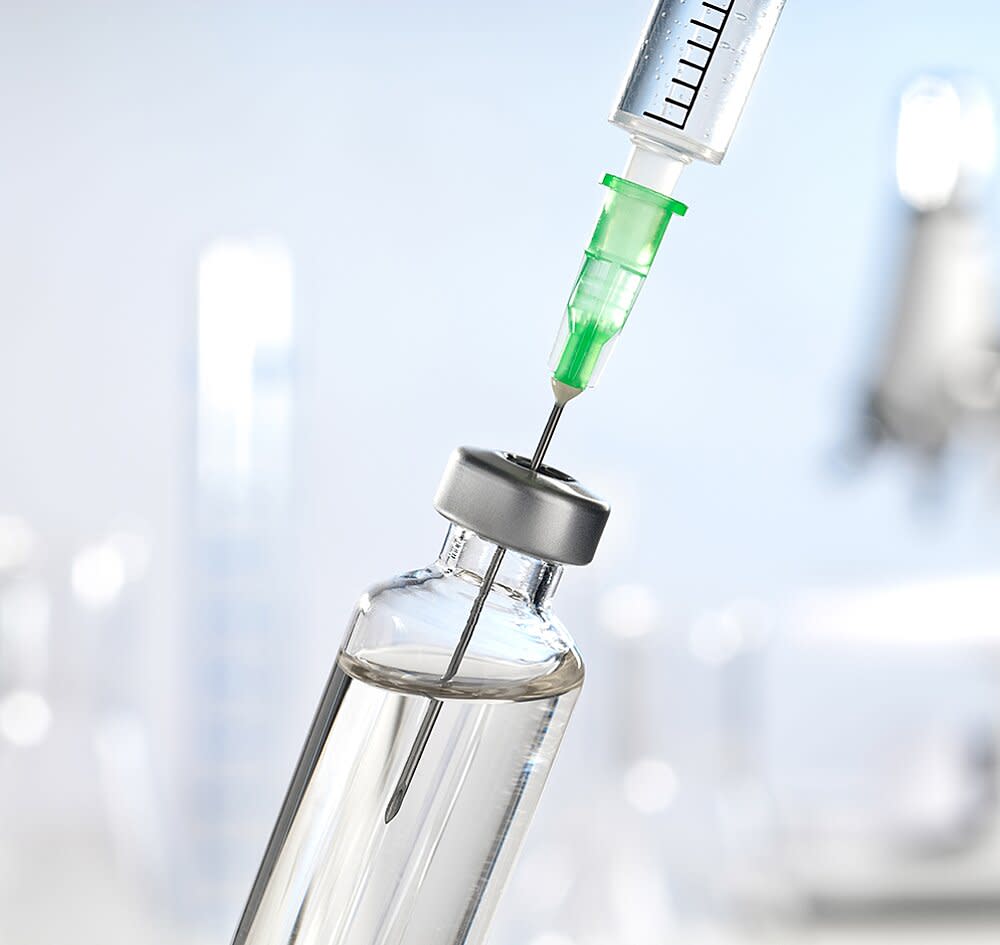6 Things You Should Know About the Birth Control Shot

Shutterstock
There are more birth control options available to you than ever. You can get intrauterine devices (IUDs), insert rings, use condoms, get an implant, slap on a patch, or pop a pill. And a recent survey done by the Guttmacher Institute found that 99 percent of women have used at least one of these during their sexually active years. But there's one form of birth control that most women don't think of: the shot. Only 4.5 percent of women choose to use injectable contraceptives, even though they're listed as one of the most reliable and cost-effective methods.
That's why we talked to Alyssa Dweck, M.D., OBGYN, and co-author of V is for Vagina, to get the real scoop on its safety, comfort, and efficacy. Here are six things you need to know about the shot, so you can make the best decision for your body:
It works. The Depo-Provera shot is 99 percent effective at preventing pregnancy, meaning it's as good as intrauterine devices (IUDs) like the Mirena and better than using the pill (98 percent effective) or condoms (85 percent effective). "It's very reliable since it doesn't require daily administration, so there's less chance for human error," says Dweck. (Psst...Check out these 6 IUD myths, busted!)
It's long-term (but not permanent) birth control. You need to get a shot every three months for continuous birth control, which amounts to a quick trip to the doctor four times a year. But if you decide you're ready for a baby, your fertility is restored after the shot wears off. Note: It takes an average of 10 months after your last shot to get pregnant, longer than other hormonal types of birth control, like the pill. This makes it a good choice for women who know they want kids someday but just not in the near future.
It uses hormones. Currently, there's only one type of injectable contraception, called Depo-Provera or DMPA. It's an injectable progestin-a synthetic form of the female hormone progesterone. "It works by inhibiting ovulation and preventing egg release, thickening cervical mucus, which makes it harder for sperm to access an egg for fertilization, and by thinning the uterine lining making the uterus inhospitable for pregnancy," says Dweck.
There are two dosages. You can choose to get either 104 mg injected under your skin or 150 mg injected into your muscle. Some studies suggest that our bodies absorb medicine better from intramuscular injections but that method may also be slightly more painful. Nevertheless, both methods provide extremely effective protection.
It's not for everyone. The shot may be less effective in obese women, says Dweck. And because it has hormones, it has the same potential side effects as other types of hormonal birth control containing progestin-plus a few more. Because you're getting a mega-dose of hormone in one shot, you're more likely to have irregular bleeding or even total loss of your period. (Although that might be a bonus to some!) Dweck adds that bone loss is possible with long-term use. The good news, however, is that it contains no estrogen, so it's good for women who are estrogen-sensitive.
It can make you gain weight. One of the reasons women most often give for not choosing the shot is the rumor that it makes you gain weight. And this is a legit worry, says Dweck, but only to a point. "I find that most women gain approximately five pounds with Depo," she says, "but that's not universal." A recent study from Ohio State University showed that one factor determining if you gain weight from the shot is the micronutrients, or vitamins, in your diet. Researchers found that women who ate a lot of fruits, veggies, and whole grains were less likely to gain weight after getting the shot, even if they ate junk food as well. (Try the best foods for flat abs.)

